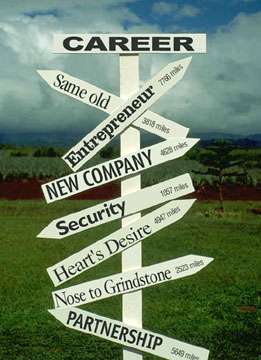Have you ever had an idea to change something about your routine, your family life, or your organization, but never seem to find the time to get around to it? We all do it…and probably way too often. Why do we do it?
Humans are creatures of habit and routine. We typically resist change, and as a result, end up delaying action. By the way, we are not born this way. Kids love change; They change daily. But for adults, all kinds of intricate central nervous system stuff (like the fight or flight reaction) start to fire when we begin to think about change, much less actually do something differently. Add negative self talk to this, like…“It's probably a stupid idea anyway,” and it's no wonder only a very small percentage of people become innovators and culture changers.
 There are a multitude of reasons for our preference for routine and ritual over the possibility of constant change and impulsive decisions, and although this preference can be beneficial in a myriad of ways, it can also stymie our development and growth, especially in business and management.
There are a multitude of reasons for our preference for routine and ritual over the possibility of constant change and impulsive decisions, and although this preference can be beneficial in a myriad of ways, it can also stymie our development and growth, especially in business and management.
We’ve written several articles about the Growth Mindset and Resiliency that touch on this very important topic (WorkPuzzle 1, 2, 3, 4). Research confirms repeatedly, that physically taking action will move the ball down the field, either through discovering something new, ruling out a plan, or innovating something that builds upon something else…that eventually becomes a key difference maker.
Here is a very short list of why we need to build in room for innovation, experimentation, and change:
- Stagnant companies die
- Team members are best engaged in their work somewhere between boredom and anxiety –– Managers must find the balance
- Experimentation precedes innovation
- Doing something may lead to mistakes, but we also learn a great deal through our mistakes.
I’ll leave you today with this list of quotes on preferring “action” that I found on the Tom Peters blog:
- "We have a 'strategic plan.' It's called doing things." —Herb Kelleher
- "This is so simple it sounds stupid, but it is amazing how few oil people really understand that you only find oil if you drill wells. You may think you're finding it when you're drawing maps and studying logs, but you have to drill." —John Masters, Canadian oil and gas wildcatter, The Hunters
- "Can do!" —Motto, U.S. Navy Seabees (U.S. Naval Mobile Construction Battalions)
- "Execution is the job of the business leader." —Larry Bossidy & Ram Charan/ Execution: The Discipline of Getting Things Done
- "Ready. FIRE! Aim." —H. Ross Perot (versus the far more common "Aim! Aim! Aim! …")
- "BLAME NO ONE. EXPECT NOTHING. DO SOMETHING." —Locker room sign posted by NFL football coach Bill Parcells
- "Thinking is the enemy of creativity. It's self-conscious and anything self-conscious is lousy. You simply must … Do things." —Ray Bradbury
- "To Be somebody or to Do something." —John Boyd
- "Fall seven times, stand up eight." —Japanese proverb
- "You miss 100% of the shots you never take." —Wayne Gretzky
 Editor's Note: This article was written by Dr. David Mashburn. Dave is a Clinical and Consulting Psychologist, a Partner at Tidemark, Inc. and a regular contributor to WorkPuzzle. Comments or questions are welcome. If you're an email subscriber, reply to this WorkPuzzle email. If you read the blog directly from the web, you can click the "comments" link below.
Editor's Note: This article was written by Dr. David Mashburn. Dave is a Clinical and Consulting Psychologist, a Partner at Tidemark, Inc. and a regular contributor to WorkPuzzle. Comments or questions are welcome. If you're an email subscriber, reply to this WorkPuzzle email. If you read the blog directly from the web, you can click the "comments" link below.












